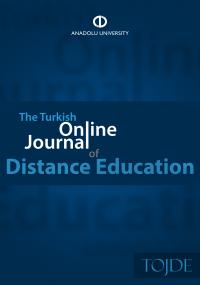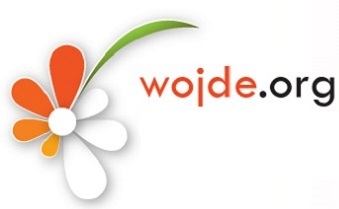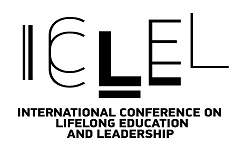
About
Dear Distance Educators,
U.D.E.E.E.W.A.N.A which stands for (United Distance Education for Eastern Europe, Western Asia and Northern Africa) is a new distance education association. Here is a brief description about UDEEEWANA.
UDEEEWANA has been established as a new distance education association for the region of Eastern Europe, Scandinavia, Baltics, Turkic Republics, Caucasians, Middle East, Arab Peninsula and North Africa which include the countries like, Afghanistan, Algeria, Azerbaijan, Belarus, Bulgaria, Cyprus, Egypt, Estonia, Finland, Greece, Georgia, Jordan, Hungary, Iraq, Iran, Israel, Kazakhstan, Kyrgyzstan, Latvia, Lithuania, Macedonia, Moldova, Morocco, Northern Cyprus Turkish Republic, Norway, Oman, Palestine, Poland, Romania, Russia, Saudi Arabia, Serbia, Slovakia, Slovenia, Sweden, Syria, Tajikistan, Tunisia, Turkmenistan, Turkey, Ukraine, United Arab Emirates, Uzbekistan and so on.
WHY UDEEEEWANA IS NEEDED
It is mentioned in the book which is titled as “eLearning Practice…. 2010, that E-Learning offers many opportunities for individuals and institutions all over the world. Individuals can have access to education they need almost anytime and anywhere they are ready to. Institutions are able to provide more cost-effective training to their employees. E-learning context is very important. It is common to find educators who perceive e-learning as internet-only education that encourages a static and content-focused series of text pages on screen. While e-learning started in the early 1970s with mainframe computing, it really didn't take off until the advent of CD-ROMs and the World Wide Web. Multimedia CD-ROMs in the early 1990s allowed us to develop programs that had color, action, and interactivity. These were a major advance over text on monochrome screens that characterized educational computing in the 1980s.
In the years, 1990s and 2000s, a new learning landscape emerged that is a multi-channel learning environment which can be seen as a "complex adaptive system. "For the most part, this environment is “self-organizing” and because of that it is difficult to exactly predict how it is all going to turn out in the next five years. There is also a trend seen in the transition from training to learning that leverages the power of the Internet to go beyond eLearning through knowledge management, competency management, and performance support and to HR processes like performance management, talent management, succession planning, and hiring. From the Web 2.0 to Web4.0 (and e-learning 2.0) Technologies are driven by collaboration.
Today's learning and education technology are developing at such rapid pace that we can only guess what tomorrow will be like. In those days eLearning technology application changed its structure by combining via new discussion technologies such as mLearning (mobile learning), tLearning (IPTV) and uLearning (ubiquitous).
Multimedia on the internet, telecommunications, wireless applications, mobile devices, social network software, Web 2.0, Web 4.0 etc are radically redefining the way people obtain information and the way to learn.
Policymakers, international organizations, higher education institutions and researchers in the field of education agree that Information and Communication Technologies (ICT) have the potential to stimulate international collaboration, to create flexible learning paths and to open the borders of the university.
Western and Eastern Asian nations are increasingly embracing e-learning in education and training, both within their classrooms and in distance education.
E-transformation has been much slower in the education systems of the Eastern Europe, Nordic, Turkic, Middle East, Arab and North African countries. It is, therefore, considered timely to conduct an inquiry into the ways and extent of e-learning in these countries, the factors driving and constraining such developments, and how progress might be further encouraged. Searching the literature, it is possible to find reports, accounts, research findings and conference presentations on e-learning in these countries but many of these are in languages other than English. English language developed in collaboration with colleagues in these various countries and so will be a first and of international significance.
Many of the institutions in the countries to be reviewed also make extensive use of traditional teaching and methods and media, so it will not consider for these countries only e-learning and mobile or m-learning in isolation but in blended or mixed-mode learning, both in classroom environments and in distance education.
It is a well-known fact that the international distance education organizations in the world are not well organized and functional in this area or for the regional distance education institutions.
To fill this gap, it can be argued that one of the options is that, Turkey could take the lead in distance education in the region and can organize the practices of the distance education facilities for these regional countries in academy and practice level. So, based on this argument, the structure of the potential organization and the regulation of the organization will be discussed.
And also, the draft constitution of the recommended association will be presented, and will be regulated and redesigned in accordance with the delegates of the UDEEEWANA discusses. Thanks to this United, nearly 50 countries will have the chance to introduce their distance education practices to the world. Expected these countries can use UDEEEWANA to discuss practical and scientific issues via conferences or journals, and they can even establish sub-distance education associations in their region or in their countries. Some of the indicated countries above are as Afghanistan, Algeria, Azerbaijan, Belarus, Bulgaria, Egypt, Estonia, Finland, Greece, Georgia, Jordan, Hungary, Iraq, Iran, Israel, Kazakhstan, Kyrgyzstan, Latvia, Lithuania, Macedonia, Moldova, Morocco, Norway, Oman, Palestine, Poland, Romania, Russia, Saudi Arabia, Serbia, Slovakia, Slovenia, Sweden, Syria, Tajikistan, Tunisia, Turkmenistan, Turkey, Ukraine, United Arab Emirates, Uzbekistan and so on.
© Since by UDEEEWANA-GLOKALde 2015
go home





